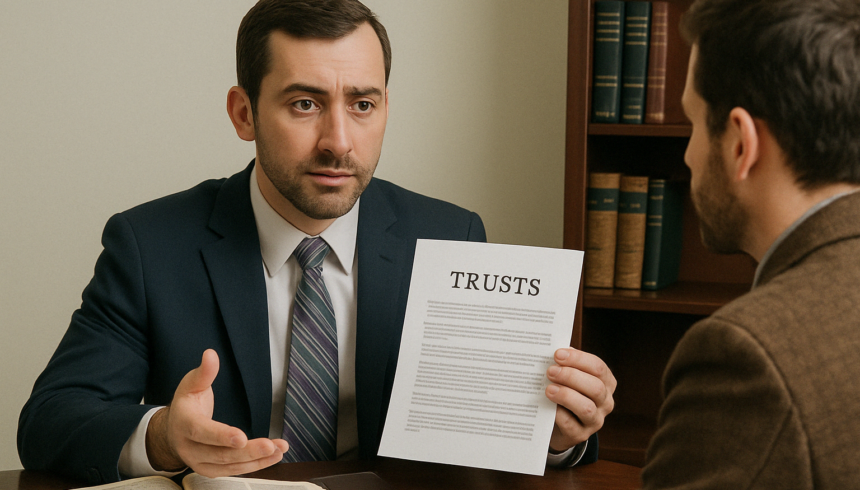
 By Evan Lange
By Evan Lange
Before proceeding, please review the legal disclaimer.
With online legal services and DIY estate planning kits becoming more popular, many people ask: Can you set up a trust without an attorney? The short answer is yes—but the better question is: Should you?
A trust is a powerful estate planning tool that can protect your assets, avoid probate, and provide for your loved ones. But creating a trust isn’t as simple as filling in a few blanks on a form. If it’s not done correctly—or if you overlook key legal or financial details—you could leave your estate vulnerable to disputes, taxes, or delays.
At The Lange Firm, we help Texans create legally sound, customized trusts designed to protect their legacy. In this blog, we’ll explain how trusts work, what’s involved in setting one up, and why working with an attorney is often the smartest decision.
A trust is a legal entity that holds and manages property or assets for the benefit of one or more people (called beneficiaries). The person who creates the trust is called the grantor, and the person who manages it is the trustee.
Common types of trusts include:
A trust allows your chosen trustee to distribute your assets without going through probate, and it can include specific instructions about how and when beneficiaries receive their inheritance.
Technically, yes. There are DIY websites and legal forms that allow you to draft a trust without legal representation. But just because you can doesn’t mean you should.
Here’s why:
Generic trust templates don’t take into account your unique situation—such as blended families, business ownership, special needs children, or Texas-specific probate laws.
Creating the trust document is just the first step. You must “fund” the trust by retitling assets (like real estate, bank accounts, and investments) into the name of the trust. This step is commonly missed in DIY trusts—rendering them useless.
An improperly worded trust can lead to:
In many cases, fixing a poorly written trust ends up costing more than working with a lawyer in the first place.
At The Lange Firm, we believe estate planning should never be one-size-fits-all. Here’s why working with a trust attorney is your best option:
An attorney can tailor your trust to your specific goals—whether you’re trying to avoid probate, minimize taxes, protect heirs, or support a charitable cause.
Estate planning laws vary by state. A local attorney ensures your trust complies with Texas property, probate, and tax laws.
We help you properly title assets in the name of the trust so it works when you need it most.
Life changes—marriage, divorce, new children, or buying property—may require updating your trust. When you work with The Lange Firm, you get long-term support and guidance.
An attorney-drafted trust is less likely to be challenged by heirs or misinterpreted in court.
Without legal guidance, many people unknowingly make errors like:
At The Lange Firm, we’ve seen families struggle through probate and litigation because a DIY trust was incomplete or unenforceable.
You should definitely seek legal help if:
Even in “simple” estates, a small error can create big problems. A consultation with a lawyer ensures that doesn’t happen.
At The Lange Firm, we offer flat-fee and customized estate planning packages to help you:
We’ll walk you through each step, explain everything in plain language, and make sure your trust actually works when you and your family need it most.
📞 Contact us today to schedule a consultation and learn how a trust attorney can protect your legacy.
So, can you set up a trust without an attorney? Technically yes—but unless you have legal experience and a very simple estate, the risk often outweighs the reward.
✅ For something as important as your legacy, don’t take chances. Let The Lange Firm help you build a trust that’s legally sound, fully funded, and designed to serve your family for generations to come.
Follow our newsletter to stay updated.

2025- The Lange Firm all rights reserved.

Mr. Evan B. Lange is the attorney responsible for this website. | All meetings are by appointment only. | Principal place of business: Sugar Land, Texas.
The information you obtain at this site is not, nor is it intended to be, legal advice. You should consult an attorney for advice regarding your individual situation. We invite you to contact us and welcome you to submit your claim for review. Contacting us does not create an attorney-client relationship. Please do not send any confidential information to us until such time as an attorney-client relationship has been established.